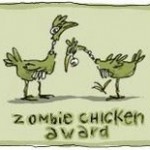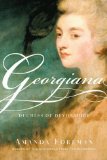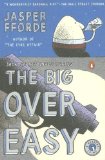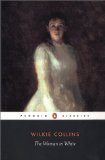 Thanks to Lizzy from My Pride and Prejudice for nominating me for a Zombie Chicken Award for Most Agreeable Blogs. I enjoy her blog very much, and while I hardly feel worthy of the distinction which she has bestowed upon me, I admit that I am very proud and pleased.
Thanks to Lizzy from My Pride and Prejudice for nominating me for a Zombie Chicken Award for Most Agreeable Blogs. I enjoy her blog very much, and while I hardly feel worthy of the distinction which she has bestowed upon me, I admit that I am very proud and pleased.
So, um, what exactly is the Zombie Chicken Award for Most Agreeable Blogs?
The blogger who receives this award believes in the Tao of the zombie chicken – excellence, grace and persistence in all situations, even in the midst of a zombie apocalypse. These amazing bloggers regularly produce content so remarkable that their readers would brave a raving pack of zombie chickens just to be able to read their inspiring words. As a recipient of this world-renowned award, you now have the task of passing it on to at least 5 other worthy bloggers. Do not risk the wrath of the zombie chickens by choosing unwisely or not choosing at all.
One need hardly tell me twice not to risk the wrath of zombie chickens, so I choose the following five bloggers, all of whom I deem most worthy of braving a raving pack of zombie chickens in order to read.
- Iliana, of Bookgirl’s Nightstand is most worthy, a true bookworm’s friend.
- Vic of Jane Austen’s World, from whom I have learned much about Jane Austen’s time period and who is a right smart Twitterer, to boot.
- Stefanie of So Many Books, whose adventures in reading, library science, and boarding buses have provided me with much insight and entertainment.
- Roger Darlington of Nighthawk, my online friend and one-stop shop for learning about an eclectic variety of historical, scientific, theological, geographical, and political issues.
- Murray Abramovitch of The Literarian, for his wonderful reviews and recommendations.







